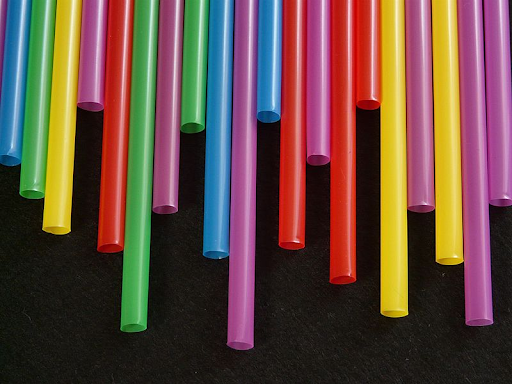Echols: Hogarth Dining Center should provide straws for patrons

https://pixabay.com/fr/users/Hans-2/, CC0, via Wikimedia Commons
Hogarth Dining Center has provided straws in the past, but has not for the current academic year.
November 1, 2021
In January of 2019, several restaurants and businesses in the Washington, D.C. area banned the use of plastic straws. This started a chain reaction extending nationwide, with many establishments banning the use of plastic straws. The notorious “save the turtles” campaign gained momentum and soon at every turn, people could see others pulling out metal reusable straws to drink their iced coffees and using paper to drink their sweet teas.
Then March 2020 arrived. The COVID-19 pandemic was not the only spread that remained in the wake of the month; a plastic pandemic emerged as well. In order to reduce person-to-person contact, legislation restricting disposables was suspended and the use of single-use plastics sharply increased.
This is true in the MUW Hogarth Dining Center as well. Currently, the dining hall offers single-use to-go boxes, cups, and straws for students who would rather take their food-to-go and dine in less congested areas; however, for students dining in the cafeteria, no straws are offered; students drink directly from the cafeteria’s reusable plastic cups. Recently MSMS students raised the question of whether or not the dining hall should offer plastic straws to reduce the spread of COVID-19. While there are environmental factors to consider, the cafeteria should provide straws on account of COVID-19 safety and inclusion of those with disabilities.
Obviously, the use of plastic straws over drinking directly from reusable cups reduces the risk of spreading COVID-19. The virus enters through the nose or mouth. Providing straws offers students peace of mind and safety in knowing that what is touching their mouths is clean and not likely to harbor COVID-19. As the spread of COVID-19 decreases, the probability that campus life at MSMS will transition back to normal soon increases.
The effect of the increase in straw use on the environment is also an aspect to contemplate. While a decrease in the use of straws would indeed be beneficial to our environment and a step in the right direction regarding ocean pollution, that step would be relatively small. Out of the eight million tons of plastic that find their way into the ocean annually, straws make up .025% of it. In some respects, the war on plastic straws seems to be an almost meaningless diversion from the real issue of waste dumping from practices like the fishing industry, which accounts for 46% of ocean pollution through abandoned fishing equipment.
Although it is true that we all have to do our part in helping the environment, the part of relieving the effects of ocean pollution by the overall banning of plastic straws will not have an overwhelming impact on ocean pollution. The dining hall withholding straws definitely won’t make a lasting impact; however, this should not deter students from continuing sustainable practices like recycling, conserving water or even deciding not to use a straw when it isn’t needed. Keeping what is environmentally friendly in our everyday lives is important; however, when the benefits of providing the public with straws outweigh the potential negatives, adjustments must be made.
Finally, by not providing students, guests and faculty straws with their meals, policy-makers ignorantly overlook the fact that straws aren’t only used by able-bodied people. Many people who have a wide range of disabilities utilize straws for more than just convenience. Many people with disabilities rely on straws to consume food and drink to survive. The elderly who frequent the MUW dining hall on a daily basis also use straws as a means of effective eating and drinking. If the availability of plastic straws is limited, they are restricted to the use of paper straws, which aren’t nearly as effective, or expected to carry around and care for their own reusable straw, adding unnecessary obstacles to engage in everyday activities. By providing straws, the cafeteria would be increasing inclusivity on campus.
Overall, there are many valid factors to consider when deciding whether or not the cafeteria should provide plastic straws; however, the possible negative environmental effects are minuscule compared to the positive it could do for the school regarding COVID-19 safety and inclusivity.









Chingun • Nov 10, 2021 at 10:15 pm
Too much of a stretch there. I would honestly just say it’s more for convenience. If covid was such a factor then why drink from the cup in the first place…..why use the forks and spoon you use in the cafeteria?
Heath Stevens • Nov 1, 2021 at 4:50 pm
I highly recommend Rain’s reusable silicone straws: https://rainhydration.com/ .